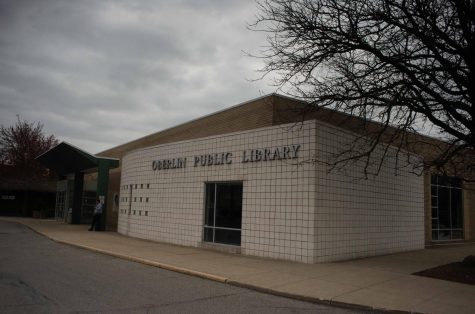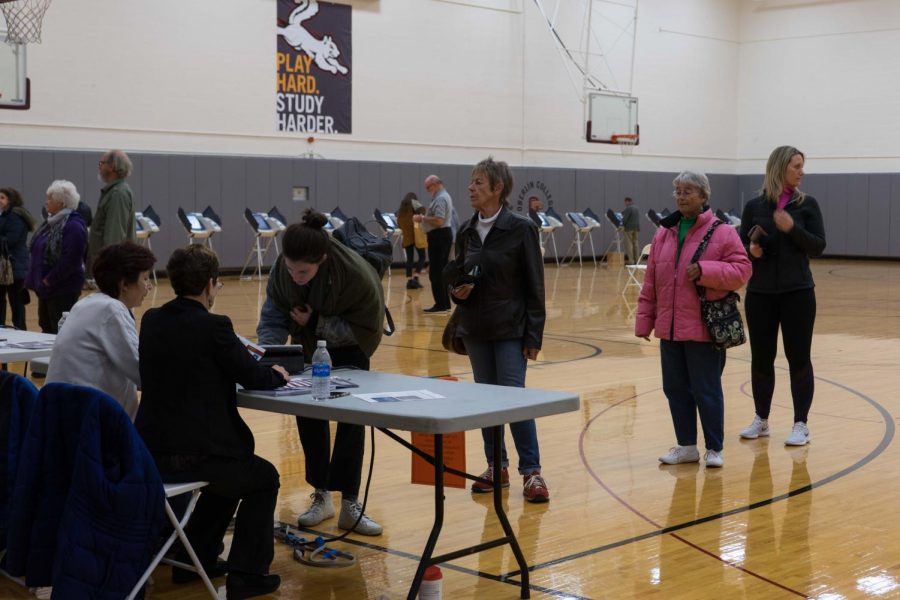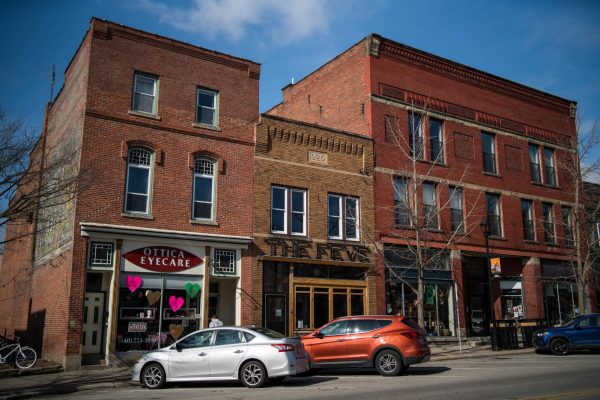Oberlin Primary Election Looks to Renew Key Tax Levies
Community members vote at Philips gym in the November 2017 local election.
Ohio’s primary election on May 7 will decide whether the city of Oberlin will renew two pre-existing taxes — an income tax that supports the city’s general fund and a tax levy for the benefit of the public library.
The five-year, 0.2 percent income tax levy supports the operating and capital improvement expenses that go toward the City’s general fund. The levy is estimated to generate $618,889 in 2019 alone and city officials predict that this number will stay consistent for years to come.
“The general fund pays for, this is the way I describe it, quality of life issues,” the city of Oberlin’s Finance Director, Sal Talarico, explained. “Police, fire, making sure your family and property are safe, recreation programs, the beautiful parks that we have — all quality of life things.”
The tax levy for the benefit of the Oberlin Public Library, the other item on the ballot, provides nearly a quarter of the library’s annual operating budget. It is imposed at a rate of 1.5-mills for each one dollar of valuation — i.e., for $100 of valuation, $0.15 will be generated. This levy would also last five years and is estimated to produce $285,921 per year.

“Financially, the levy really helps the library a lot,” Audrey Kolb, the chair of the Library Board of Trustees said. “I don’t know if we would survive as well without it. It is used for current expenses including paying staff, buying materials (books, DVDs, etc.), building maintenance and repairs, and The Bridge, which is the Oberlin Community Technology Center.”
The .2 percent income tax levy started in 2005, according to Talarico’s report. The 1.5-mill tax levy for the library has been passed two times previously, making this the third time it is up for election. If both are renewed, tax rates will not increase.
“It’s no change at all,” Talarico said. “The tax rate will stay the same.”
Without the revenue generated from these taxes, Oberlin may see a reduction in some of its key public services. However, if the municipal tax proposal were to fail during this election, it would appear on the ballot again during the November general election.
“If the levy does not pass, the libraries would continue to function but limpingly,” Kolb said. “The fact is, the state Public Library Funding has been slashed, so this is really necessary for the public library to continue to serve the community.”
Oberlin College Assistant Professor of Economics Evan Kresch expressed support for the tax renewals and believes they could solve local budget problems created during former Governor John Kasich’s administration.
“He slashed the state income tax,” Kresch said. “Kasich also cut the budget deficit. The way he did that was by cutting transfers to local governments. He cut support to the cities, which made the state budget look really good. He was then able to pass state income tax reductions. …What Kasich did was essentially kicking the issue down the line. So, cities have to address it. It’s now on local government to decide if they want to make up for that shortfall on the revenue.”
Even though most Oberlin students do not have a taxable income or property within the city, Obies who are registered to vote in-state have the opportunity to participate in the May 7 election.
“It’s really important that everybody take advantage of their right to vote,” Kolb said. “Students should look at what the issue is, look into their conscience, and see if they feel that it would benefit the people that are going to be left behind when they take off with their own lives.”
Oberlin voters can cast their ballots in Phillips gym from 6:30 a.m. to 7:30 p.m.







